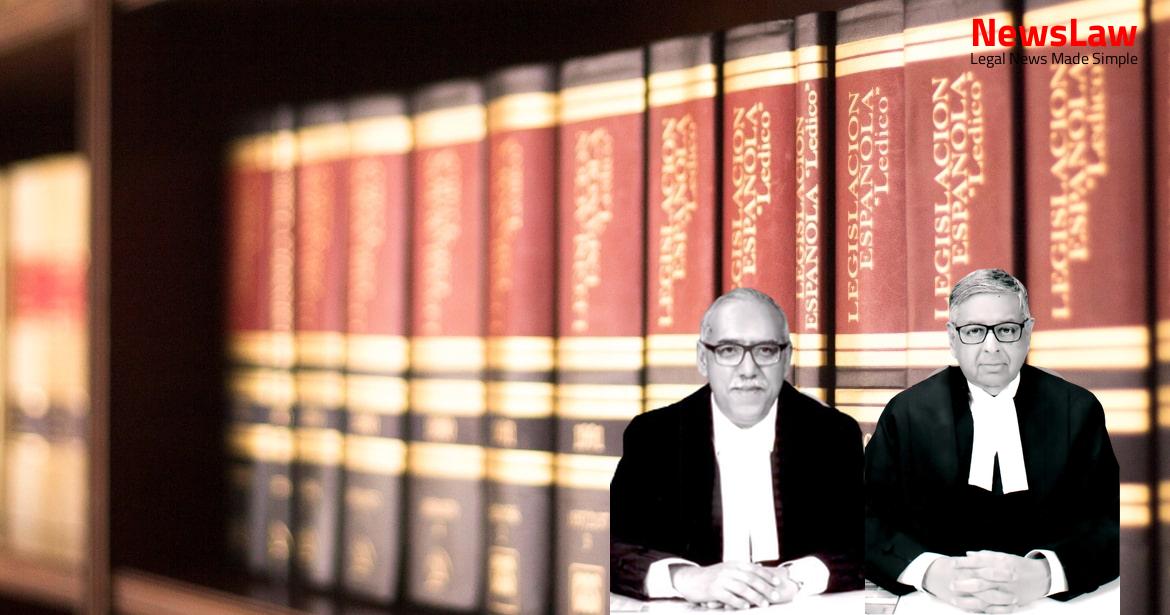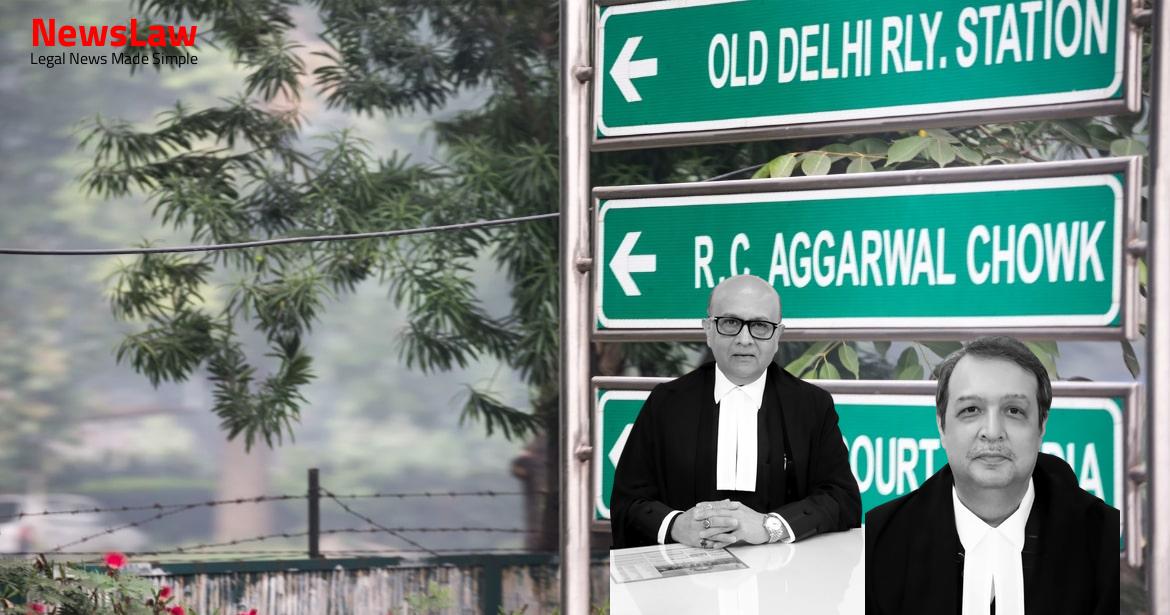In a significant legal battle over a land dispute, the Supreme Court of India adjudicated the case involving Leeladhar and Deshraj. The matter revolved around an agreement to sell 18 bighas of land for Rs.40,000, with the plaintiffs seeking specific performance and possession. The court’s decision on whether the agreement was a sham or a genuine transaction has important implications for property rights and contractual obligations. Let’s delve into the details of this intriguing case.
Facts
- Leeladhar entered into an agreement to sell 18 bighas of land for Rs.40,000 with Deshraj, father of the plaintiffs.
- Deshraj passed away and the plaintiffs filed a suit for specific performance of the contract and possession of the disputed land.
- Deshraj issued a legal notice to Leeladhar for executing the sale deed.
- On a later date, another document was entered into where Leeladhar received the balance amount and gave possession of the land to Deshraj.
- Leeladhar claimed the agreement was a sham to secure loans, and alternatively requested a refund of Rs.40,000 with interest.
- The trial court decreed in favor of the plaintiffs.
- The second appeal was allowed and the matter was remanded to the first appellate court.
- The first appellate court dismissed the appeal of Leeladhar and upheld the trial court’s order.
- Leeladhar filed an appeal which was partly allowed by the first appellate court, stating that the plaintiffs were not entitled to the discretionary relief of specific performance.
- This judgement was challenged before the High Court.
Also Read: Enforcement of Foreign Award: Case of Oscar Investments Limited and RHC Holding Private Limited
Arguments
- Document in question (Exhibit P-13) was deemed a sham document
- Possession was not with the plaintiffs, suggesting the document was for loan repayment security
- Deshraj had executed various documents but did not file suits for specific performance for those contracts
- Argument that Section 20(2)(c) prohibits decree of specific performance in favor of the plaintiffs
- Shri P.K. Jain, learned counsel for the respondents, argues that all courts have found that the document in question was an agreement to sell.
- The agreement (Exhibit P-13) was registered on 18.02.1985.
- A partial payment of Rs.35,000 out of Rs.40,000 was made initially, and the remaining Rs.5,000 was paid later.
- It is argued that Leeladhar, having received the full amount and transferred possession, cannot object to the decree of specific performance.
Also Read: Case of Eligibility for Disability Pension: Air Force Officer’s Retirement
Analysis
- An agreement to sell was executed between Leeladhar and Deshraj.
- Possession of the land was with the plaintiffs-respondents.
- Plaintiffs were not in a hurry to get the sale deed executed as they had possession of the land.
- The order set aside by the High Court cannot help the appellants.
- Agreement was an agreement to sell, and Leeladhar received full sale consideration and handed over possession to Deshraj.
- Exercise of discretion not to decree specific performance is justified under Section 20(2)(c) of the Specific Relief Act.
- Possession of only copies of the documents by Leeladhar was not a valid argument as he would have received originals if the loans were repaid.
- Delay in filing the suit is not a disentitlement for specific performance relief.
- Courts have found that Deshraj being a moneylender and executing the document for securing repayment is not the case.
- The suit is within the limitation period.
- Mere inadequacy of consideration or the fact that the contract is burdensome or imprudent does not indicate unfair advantage or hardship.
- In determining hardship for the defendant, circumstances at the time of the contract are considered unless subsequent actions by the plaintiff caused the hardship.
- To benefit from clause (c) of Section 20(2), the defendant must show that although the contract may be voidable, it is inequitable due to the circumstances under which it was entered into.
- The document entered was deemed as an agreement to sell and not a sham transaction
- The appellants cannot benefit from this provision as stated in the agreement
Also Read: Judgment by Supreme Court On Man Singh vs. State of India
Decision
- Pending application(s) disposed of
- No merit found in the appeal
- Appeal dismissed
Case Title: LEELADHAR (D) THR. LRS. Vs. VIJAY KUMAR (D) THR. LRS.
Case Number: C.A. No.-007282-007282 / 2009



